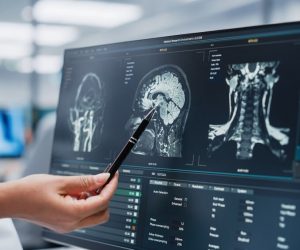Is Drug-Related Brain Damage Reversible?

How Drugs Damage the Brain
When someone has been addicted to drugs or alcohol for some time, enduring health effects can begin. Drug abusers and their loved ones often wonder if drug brain damage is permanent, and the truth is that drugs and alcohol can definitely do long and short-term brain damage.
Addictive substances are dangerous in many ways, and the sooner you can address an issue and begin treatment and recovery, the better. If you or one of your loved ones is struggling with addictive substances, including alcohol addiction, help is available at WhiteSands Alcohol and Drug Rehab today. We have treatment and recovery resources that can help with brain damage from drugs, including medical detox, Partial Hospitalization Plans (PHP), behavioral therapy, and inpatient and outpatient program options.
What we often refer to as brain damage is more accurately a brain injury related to drug or alcohol use. Often there is brain damage caused by issues related to extended alcohol and drug use, like seizures, asphyxiation, respiratory arrest, and hypoxic brain injury, among others. Brain disorders caused by drugs or alcohol are usually paired with a specific substance, like alcohol and alcoholic dementia. Long-term substance abuse causes changes to the brain cells, including the loss of grey matter and how the brain functions.
Alcohol and Alcoholic Dementia
Addictive substances can damage the brain and many of the body’s other organs and systems, like the central nervous system. Alcohol addiction is explicitly known to cause alcoholic dementia over time. Brain damage caused by alcohol addiction is known to result in the following symptoms:
- Difficulty staying focused on a task without becoming distracted
- Issues with solving problems, planning, and organizing
- The inability to set goals, make judgments, and make decisions
The damage caused by extended alcohol abuse often results in memory loss, too, which can worsen with time.
Stimulants and Anhedonia
The types of drugs people abuse over a long period directly affect what brain functions are impacted. Anhedonia is known to be uniquely associated with the longtime use of cocaine and amphetamines and a steady progression from use to dependence. Symptoms that brain injury has caused Anhedonia are as follows:
- Social withdrawal
- Lack of enjoyment in once pleasurable activities
- Lowered emotional responses
- No desire for new relationships
- Low self-esteem
Anhedonia, which drug addictions can cause to cocaine and other stimulants, is a term used to describe someone’s inability to experience a pleasure. Instead, people with Anhedonia may feel almost numb or often claim to feel nothing.
Is it possible to build a tolerance to cocaine? Learn more here:
Hallucinogens and Persisting Perception Disorder
A healthy brain operates in a certain way, even among the billions of individuals on the planet. Drug and alcohol abuse patterns of the brain can change and affect what a person sees, hears, and feels. Hallucinogen Persisting Perception Disorder (HPPD) is a cognitive disorder in which individuals continuously re-experience visual and other sensory hallucinations that they first experienced while intoxicated. People struggling with this type of damage to the brain can experience the following:
- Visual Hallucinations
- Altered Motion Perception
- Flashes of Color
- Color Enhancement
- Trails or tracers
Can the Brain Heal From Drug-Related Damage?
It is possible to reverse brain damage, and the circumstances are significantly determined by the individual and how long they have been involved with drug abuse or alcohol abuse. Many substance-related neurological complications or consequences may be reversible.
How WhiteSands Can Help
Beginning addiction treatment as soon as possible is a great way to limit brain injury caused by drug addictions or alcohol addictions. At WhiteSands Alcohol and Drug Rehab, we have many inpatient rehabs and outpatient rehab programs that can help you successfully begin your addiction recovery. Call us today for more information about our treatment and recovery options, including medical detox, Partial Hospitalization Plans (PHP), behavioral therapy, and inpatient and outpatient program options.
If you or a loved one needs help with abuse and/or treatment, please call the WhiteSands Treatment at (877) 855-3470. Our addiction specialists can assess your recovery needs and help you get the addiction treatment that provides the best chance for your long-term recovery.

